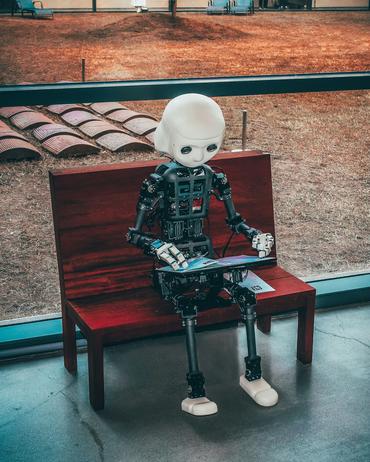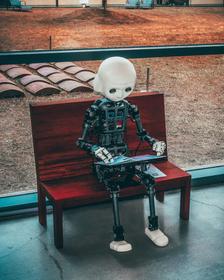What Private Schools Are Doing About AI in Education
Artificial intelligence (AI) is no longer a futuristic concept—it’s a daily presence in classrooms. In 2025, private schools and AI in education have become inseparable topics, as schools navigate both the promise and the challenges of integrating intelligent technologies into teaching and learning.
From personalized tutoring to administrative efficiency, AI offers private schools powerful opportunities. Yet it also raises pressing questions about academic integrity, data privacy, and equity. Parents choosing a private school today increasingly ask: How is the school approaching AI in education?
This article explores what private schools are doing about AI in education, with fresh insights, examples, and expert commentary on trends shaping the 2025 landscape.
Why AI Matters for Private Schools in Education
Private schools are uniquely positioned to experiment with AI because they often have:
Greater curricular flexibility compared to public schools.
Access to philanthropic funding and robust tuition revenue.
Smaller class sizes that make piloting AI tools easier.
The intersection of private schools and AI in education is significant because these schools often set trends that later influence mainstream K–12 education.
How Private Schools Are Using AI in Education (2025) Personalized Learning Platforms
Many private schools use AI-powered platforms to provide customized learning pathways. Students receive real-time feedback and adaptive lessons tailored to their strengths and weaknesses.
Examples include:
AI writing assistants that support drafting and editing while teaching grammar.
Math tutoring bots that adjust problem difficulty based on performance.
Foreign language apps with conversational AI for immersive practice.
Teacher Support and Administrative Efficiency
AI in private schools isn’t just for students. Faculty benefit from:
Automated grading of multiple-choice and short-answer assessments.
AI dashboards that track student progress across subjects.
Predictive analytics that identify at-risk students early.
New Courses and Curriculum Development
Many private schools now offer electives focused on AI itself, including:
Ethics of AI
Introductory coding and machine learning
AI and society courses examining cultural, legal, and economic impacts
These classes prepare students for future careers in an AI-driven workforce.
Guardrails: Ethics and Responsible AI in Private Schools
Private schools recognize that the benefits of AI come with risks. As a result, AI in education policies are becoming a central part of school governance.
Key Concerns
Academic Integrity: Preventing plagiarism and overreliance on AI tools like ChatGPT.
Data Privacy: Protecting sensitive student information from misuse.
Equity: Ensuring AI tools don’t reinforce socioeconomic gaps.
Common Strategies
Developing AI honor codes that outline acceptable and unacceptable uses.
Creating faculty committees on AI ethics and pedagogy.
Partnering with organizations like the National Association of Independent Schools (NAIS) to establish best practices.
Examples from Leading Private Schools
Phillips Exeter Academy (NH): Introduced an AI ethics seminar where students debate case studies on algorithmic bias.
Castilleja School (CA): Uses AI to personalize STEM learning, while embedding digital citizenship lessons.
Choate Rosemary Hall (CT): Pilots AI tools for foreign language immersion while restricting AI use in humanities essays.
These examples highlight the varied ways private schools are balancing innovation with caution.
2025 Trends: Private Schools and AI in Education 1. AI Literacy as a Core Skill
Just as coding became a staple a decade ago, AI literacy is now central. Students are expected to understand how AI works, its limitations, and its ethical implications.
2. Blended Human-AI Teaching Models
Teachers use AI for routine tasks, freeing them to focus on mentorship and higher-level instruction. AI is seen as a teaching partner, not a replacement.
3. AI in Admissions and Placement
Some private schools are experimenting with AI tools to streamline admissions processes and match students to courses based on learning styles.
4. Mental Health and Well-Being
AI chatbots are being tested as first-line support for student wellness, offering stress-management strategies and crisis resources. However, human counselors remain central.
Comparing AI in Private vs. Public Schools
| Aspect | Private Schools | Public Schools |
|---|---|---|
| Curriculum Flexibility | Faster adoption of AI-focused courses | Dependent on state standards |
| Funding | Tuition and donors fund pilot programs | Reliant on district/state budgets |
| Class Size | Easier integration in smaller groups | Scaling AI across large classes is harder |
| Policy Setting | Can create internal AI codes of conduct | Governed by state/federal mandates |
For families comparing options, see Private vs. Public Schools: Key Differences for broader context.
Expert Commentary
Dr. Leila Morgan, Director of Educational Technology at an independent school consortium, explains:
“Private schools have an opportunity—and a responsibility—to model best practices for AI in education. They can pilot tools, refine ethical standards, and share what works. Parents should ask schools not only what AI tools they use, but also how they safeguard integrity and balance innovation with human connection.”
What Parents Should Ask About AI in Private Schools
When evaluating private schools in 2025, parents should consider questions such as:
How is the school using AI to enhance—not replace—teaching?
What policies exist around AI use in homework and assessments?
How are students taught about the ethical implications of AI?
What safeguards protect student data?
These questions ensure families select schools that approach AI thoughtfully.
Conclusion
In 2025, the intersection of private schools and AI in education represents one of the most significant shifts in modern schooling. Private schools are not only adopting AI to personalize learning and support teachers, but they are also shaping the ethical and practical frameworks that will guide future generations.
For parents, the key takeaway is clear: ask how a school balances innovation with integrity. The best private schools embrace AI as a tool to deepen learning while safeguarding the values that define independent education.
For more perspective on how schools adapt to new technologies, see Boarding School Review’s insights on student life.












